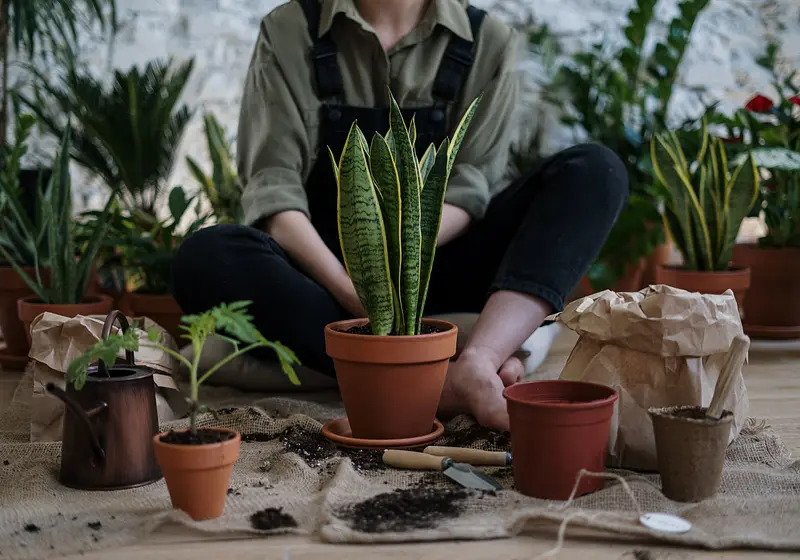Gardening can seem intimidating for a beginner, whether it be choosing the right plants to grow, or consistently watering your new seedlings. Don't let the flowery jargon and past failed attempts at gardening stop you from trying it out! Aside from the obvious benefits of having interesting decor, gardening can also provide numerous health benefits. Read on for five tips on starting your own garden, and be prepared to have some fun!
1. Choose your site
Firstly, determine the location of your future garden. Be sure to take into consideration a variety of factors. Do you live in a smaller area?
Start the medium or large pot. Have some space in the yard? Invest in a flower bed, or clear out some shrubbery.
Also keep in mind the kinds of plants you intend to grow. As a general rule of thumb, flowers and vegetables need more room to thrive, and herbs, succulents, and cacti are able to grow in smaller spaces. Most gardening materials can be found in nearby warehouse stores, as well as farmers' markets.
2. Buy the right seeds
Next, determine what you want to grow. Floras, vegetables, herbs, and succulents are all excellent plants to start with. In addition, be sure to take into consideration whether you want to start your plants from seeds, bulbs, or propagation.
For beginners, start with pre-grown bulbs. Once you feel more confident, move on to the seeds and propagation. Most plants have sunlight and climate preferences, something to be sure to take into account.
3. Start with good soil
Good soil is key to a thriving plant. For gardens, moist, nutrient-rich soil is recommended. Make sure the soil you purchase is made of less than 15% clay and more than 5% organic matter, which can be found on the packaging.
The soil should be dark, crumbly, and loose, with plenty of moisture. Stay away from sandy or clay-like soil, which can be detrimental to gardens. Take note that this may vary for succulents and cacti, which require much more sand in the soil, and faster water drainage.
4. Be consistent
An important part of gardening is to stick with it! Many give up on their seedlings after a few days because they don't see drastic growth, or eventually forget to water their plant. Always consistently water, prune, and fertilize your plant, according to instructions online or on the seed packet, and know that it's okay to mess up!
Many experienced gardeners will fail to keep plants alive as well. There's no shame in trying again!
5. Compost!
As mentioned above, fertilizing is an important part of keeping your garden thriving. Even if you don't have perfect soil, composting can provide natural fertilizer that can boost plants' development. The best part is: you can make compost from kitchen scraps!
Start with a wooden box or container and add a layer of earth or leftover soil, adding in dry twigs, leaves, and plant stalks. Then add manure, or green manure (like grass clippings or clovers) and composting scraps. This can include leftover vegetables and fruits, coffee grounds, flowers, grains, eggshells, and most foods cooked without oil, dairy, or meat. Keep your compost moist with plenty of water, and within a few weeks, the scraps should have decomposed into nutrient-rich material which can be added to your soil.
Gardening is an incredibly rewarding hobby and produces fantastic results- blooming flowers in the yard, fragrant herbs in the kitchen, and bright, decorative succulents lining the windows. We hope this list of tips will come in handy as you start planning your future garden! Regardless of what you grow, gardening is a lifelong pursuit that is sure to bring you joy.


